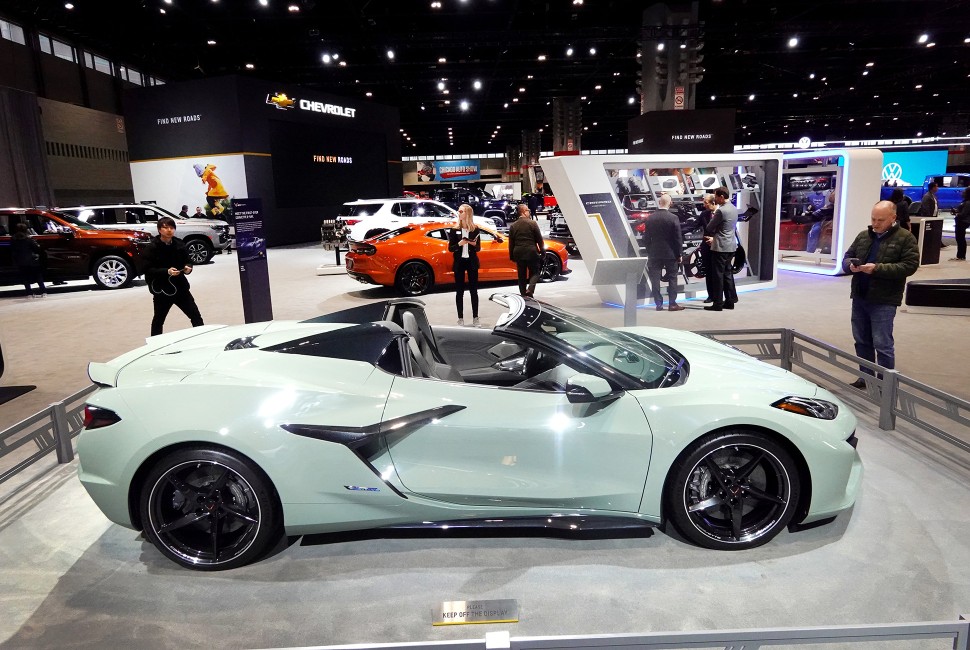The Chicago Auto Show — the nation’s largest — is on this week, and auto makers are under continued pressure to electrify vehicles as part of a global effort to decelerate human-caused climate change.
With Illinois’ Climate and Equitable Jobs Act, a path toward a cleaner grid exists, according to Northwestern University Pritzker School of Law professor Robert Weinstock, but public health officials and environmental advocates will have a key role in ensuring “electrification in Illinois leads to maximum public benefits.”
Weinstock is one of three Northwestern experts who spoke with Northwestern Now about the 2024 Chicago Auto Show, the process toward electrification and its associated public health benefits. Here are a few of their key thoughts.
Reducing costs while increasing sustainability
“For the last seven years, electric vehicle sales have been growing globally,” said Jeffrey Lopez of the McCormick School of Engineering. “This trend will only continue to accelerate with both industry and policy commitments to electrify transportation. The major challenges are going to be decreasing battery costs and meeting the raw materials demands to produce these vehicles. My group is working on new high-performance materials that can reduce costs, create critical mineral-free technologies and implement new manufacturing and recycling approaches to help improve the sustainability of the entire battery economy.”
Lopez is an assistant professor of chemical and biological engineering at McCormick and a faculty affiliate of the Trienens Institute. His research works to identify and develop new high-performance materials for batteries to help improve the sustainability of the entire battery economy.
Think holistically about the impact
“Mile per mile, accounting for using electricity to fuel them and make their batteries, electric vehicles emit fewer greenhouse gas emissions than comparable vehicles that run on gasoline,” said Jennifer Dunn of McCormick. “But we need to be sure we think holistically about electric vehicle sustainability, especially the impacts of mining for critical minerals on the air quality, water quality and biodiversity of surrounding ecosystems.”
Dunn is a professor of chemical and biological engineering at McCormick and director of the Center for Engineering Sustainability and Resilience. She also leads a new National Science Foundation-funded global center, Sustainable, Resilient, Responsible Global Minerals Supply Chain (SuReMin), that focuses on building a sustainable minerals supply chain. She is also a faculty affiliate of the Trienens Institute for Sustainability and Energy.
Public health advocates play a key role
“Since passage of Illinois’ landmark climate legislation, the Climate and Equitable Jobs Act, the course of vehicle electrification in the state will be shaped by Beneficial Electrification Plans required under the law to be developed by utilities and approved by the Illinois Commerce Commission,” Weinstock said. “Public health and environmental advocates, like those the Northwestern Environmental Advocacy Center represents at the Respiratory Health Association, have and will have a key role in those processes to ensure electrification in Illinois leads to maximum public benefits by advancing health and equity alongside decarbonization.”
Weinstock is also director of the Law School’s Environmental Advocacy Center and a faculty affiliate of the Trienens Institute.


